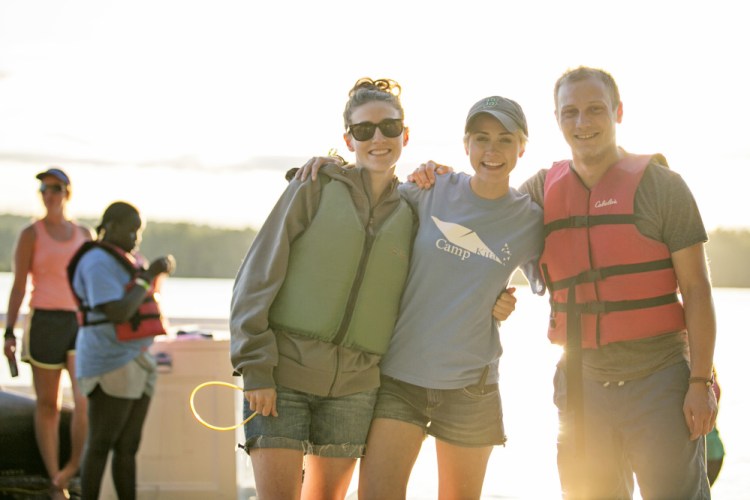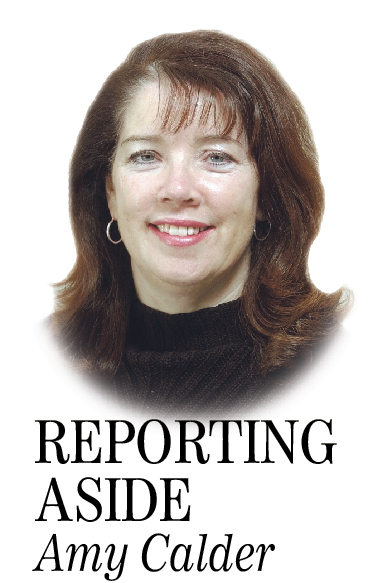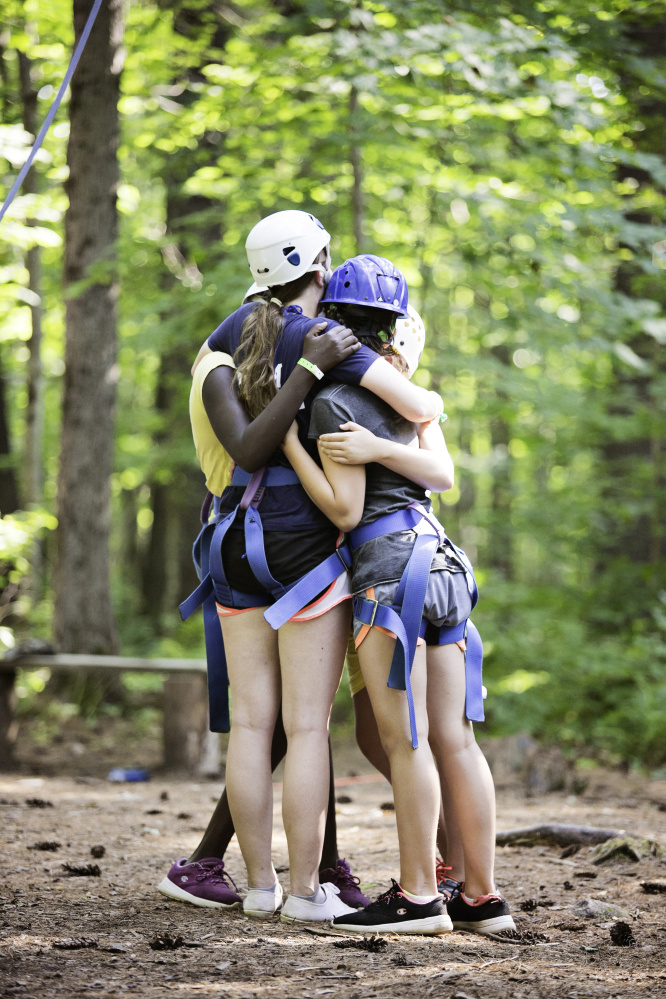Morgan Mosher remembers July 3, 2003, as if it were yesterday. It was the day she learned her father had committed suicide, and she was just 16.
“It was a rough two years obviously, and it’s a hard time, especially in a young woman’s life, to lose your father in such a traumatic way.”
Now nearly 30, Mosher is able to talk about her past and the family tragedy, but it wasn’t always so.
She and her two siblings, Sydney, now 28, and Isaiah, 32, kept to themselves after their father’s suicide and didn’t talk about it as a family. They felt ashamed, embarrassed and isolated.
“We all just sort of individually chose to ignore it and pretend everything was normal,” Morgan said. “It was so much easier than admitting to what was really going on.”
They had grown up in North Berwick, and their parents had been divorced by the time their father died. He had suffered from alcoholism and depression, but as a teen, Morgan did not know the signs that indicated he may be suicidal.
She grieved silently after his death and wondered if she were to blame. The day of the suicide, she had waited by the phone for a boy to call instead of returning a call to her father.
“There was so much guilt — that if I had called Dad, he might not have committed suicide,” she said.
Fast forward to 2013. Morgan was married and leading a busy life. A suicide survivor, she would come home from work and realize she was unhappy in her career.
One day, she and her husband sat on the sofa and talked for hours about it. He was, and remains, very supportive.
“He said, ‘You’ve got to figure out what you’re passionate about.'”
Her first thought was she wanted to go on a camping trip with her siblings with whom she had not really talked about their father’s suicide. Camping was one of the favorite things she did with her father. She thought about opening a camp for children whose parent or loved one had committed suicide, a place where they could not only have fun and bond, but also heal in healthful ways. The next day, she called her sister and connected with her brother. Within two days, they had named the camp — Camp Kita — and within a week, they had the paperwork started for making it a nonprofit organization. Kita is an Abenaki word for listen.
Since then, the Mosher siblings’ dream has become reality, as they now run a week-long overnight recreational and therapeutic summer camp where youths ages 8-17 who have had a parent or loved one commit suicide swim, canoe, ride trails, gather around campfires, and do arts and crafts. The youths also take part in group support sessions designed to help them connect with their peers through the aid of professional facilitators, volunteers and the Mosher siblings as adult role models
Throughout the week, an adult mentor is always available for a child, and that mentor has been through similar experiences with suicide. The staff includes a clinical psychologist who works with children and is skilled in trauma and loss and helps people navigate the grieving process.
The camp, which can take up to 50 campers, has been held the last two summers on Thompson Lake in Poland, but this summer it will take place August 16-21 at Pine Tree Camp in Rome on North Pond in the Belgrade Lakes Region. Tuition is waived for campers, as the money to run the camp is raised throughout the year. A $50 deposit is required for each camper, but that money is reimbursed. The first summer five campers attended and the second year 24. The campers come from all over the U.S., according to Morgan Mosher.
The Mosher siblings now hold full-time jobs in addition to running the camp. Morgan lives in Boston and her siblings in southern Maine. They raise funds through various events, and Boston Marathon runners raise thousands of dollars for the camp. Money also comes from The Samaritans, a suicide prevention and awareness organization, and the Massachusetts Department of Public Health.
Morgan Mosher has watched children come to Camp Kita, reserved and introverted, but as the week progresses, they come out of their shells and are engaged and excited about camp, she said. She recalled two sisters who attended camp for the first time and were very quiet. On the third day, one started talking and the sister followed — and then other children started chiming in. Some campers come back to camp the next year as group leaders.
The camp has been a blessing for the Mosher siblings as well. As a result of working together on the effort, they have become very close and now talk every day, according to Morgan.
“It’s definitely a full circle of healing for everybody,” she said.
Those wanting more information about the camp, or to apply, may visit www.campkita.com or email info@campkita.com.
Amy Calder has been a Morning Sentinel reporter for 28 years. Her column appears here Mondays. She may be reached at acalder@centralmaine.com. For previous Reporting Aside columns, go to centralmaine.com.
Copy the Story LinkSend questions/comments to the editors.





Success. Please wait for the page to reload. If the page does not reload within 5 seconds, please refresh the page.
Enter your email and password to access comments.
Hi, to comment on stories you must . This profile is in addition to your subscription and website login.
Already have a commenting profile? .
Invalid username/password.
Please check your email to confirm and complete your registration.
Only subscribers are eligible to post comments. Please subscribe or login first for digital access. Here’s why.
Use the form below to reset your password. When you've submitted your account email, we will send an email with a reset code.